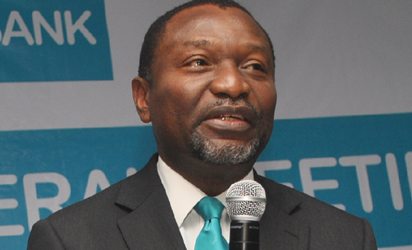The Federal Government on Thursday indicated its plan to propose a N8.6 trillion Appropriation Bill to the National Assembly for consideration as 2019 budget.
When analysed year-on-year, the proposed budgetary provision is lower by about N500 billion to the N9.1 trillion approved budget for the current fiscal year.
It would be recalled that the National Assembly increased the 2018 budget by N508 billion from the N8.612 trillion Appropriation Bill laid by the President before a joint session of the National Assembly on November 17, 2017 to N9.2 trillion.
The Minister of Budget and National Planning, Sen. Udoma Udo Udoma, gave the hint on the proposed budget at a stakeholders’ consultative forum on the Medium Term Expenditure Framework (MTEF) and Fiscal Strategy Paper (FSP) 2019-2021 held in Abuja.
The 2019-2021 Medium-Term Expenditure Framework and Fiscal Strategy Paper (MTEF/FSP) outlines FG fiscal policies/strategies and macroeconomic projections for 2019– 2021 as well as provides the broad framework for the annual budget in line with the Fiscal Responsibility Act (FRA) 2007.
The key thrusts of the 2019 – 2021 MTEF/FSP are consistent with the goals of the Economic Recovery and Growth Plan (ERGP) of the Federal Government aimed at sustaining growth and diversifying the productive base of the nation’s economy.
Udoma told the stakeholders, who comprised representatives of the organised private sector, civil society groups and the media, that the reduced government revenue projection for the year and the need to cut down on borrowing influenced government’s decision to reduce the budgetary proposals for next year.
The minister clarified: “Borrowing was critical when we were shirt of funds to fey the country out of recession. And that borrowing was directed at capital projects and it worked.
“And that is why you see activities in Lagos-Ibadan railways. That is why you see Lagos, Kano terminals are being finished. That is where the money went into. The borrowing was necessary and essential, and it was borrowed for infrastructure. However, that level of borrowing we are taking it down because as revenue pickup, we rely less on borrowing”, he added.
While stressing on the imperative to boost the nation’s non-oil revenue generation capacity, Udoma pointed out that it was important for Nigeria to focus on increasing its oil and non-oil revenues and reduce borrowing substantially.
He clarified: “We must look at ways of squeezing out the maximum we can get from oil because oil is a wasting asset, we need to get the money and use it to solve a lot of our problems.
“We need to invest in infrastructure, invest in human capacity development and in all we need to build up our stock of capital. We also need to ensure we build up the non-oil sector.
“At the moment, the revenues are on average up by about 30 per cent from 2017, but it is not where we want to be, we need to do much better. Our ratio of taxes collected to our Gross Domestic Product (GDP) is still very low.
“We need to look at how we can generate resources so that we rely less on debts, more on revenue and also build up the revenue so our debt service to revenue ratio will bring that down.
“We must increase our revenues that have to be the priority, because when you have that revenue, it is possible to deliver quality infrastructure which this country requires’’, the minister stressed.
He said that he was optimistic that the country would continue to experience growth as the implementation of the ERGP remained sustained and outlook for oil prices brightens.
The minister hinted that oil production was projected at 2.3 million barrels per day for the 2019 proposed budget, while the exchange rate benchmark was set at N305 to U.S dollar. In addition, he said that the GDP growth rate for 2019 was projected at three percent, 3.6 percent for 2020 and 3.9 percent for 2021.
From the power point presentation on the proposed budget at the event, the government is projecting oil revenue at N3.668 trillion; a share of non-oil revenue at N1.385 trillion; a share of minerals and mining N1.288 trillion, and a share of NLNG dividends at N39.880 billion for the 2019 fiscal year earnings.
In addition, it proposed independent revenue of N642.579 billion, Grants and Donor funding of N209.915 billion and FG’s share of signature bonuses at N84.228 billion.






